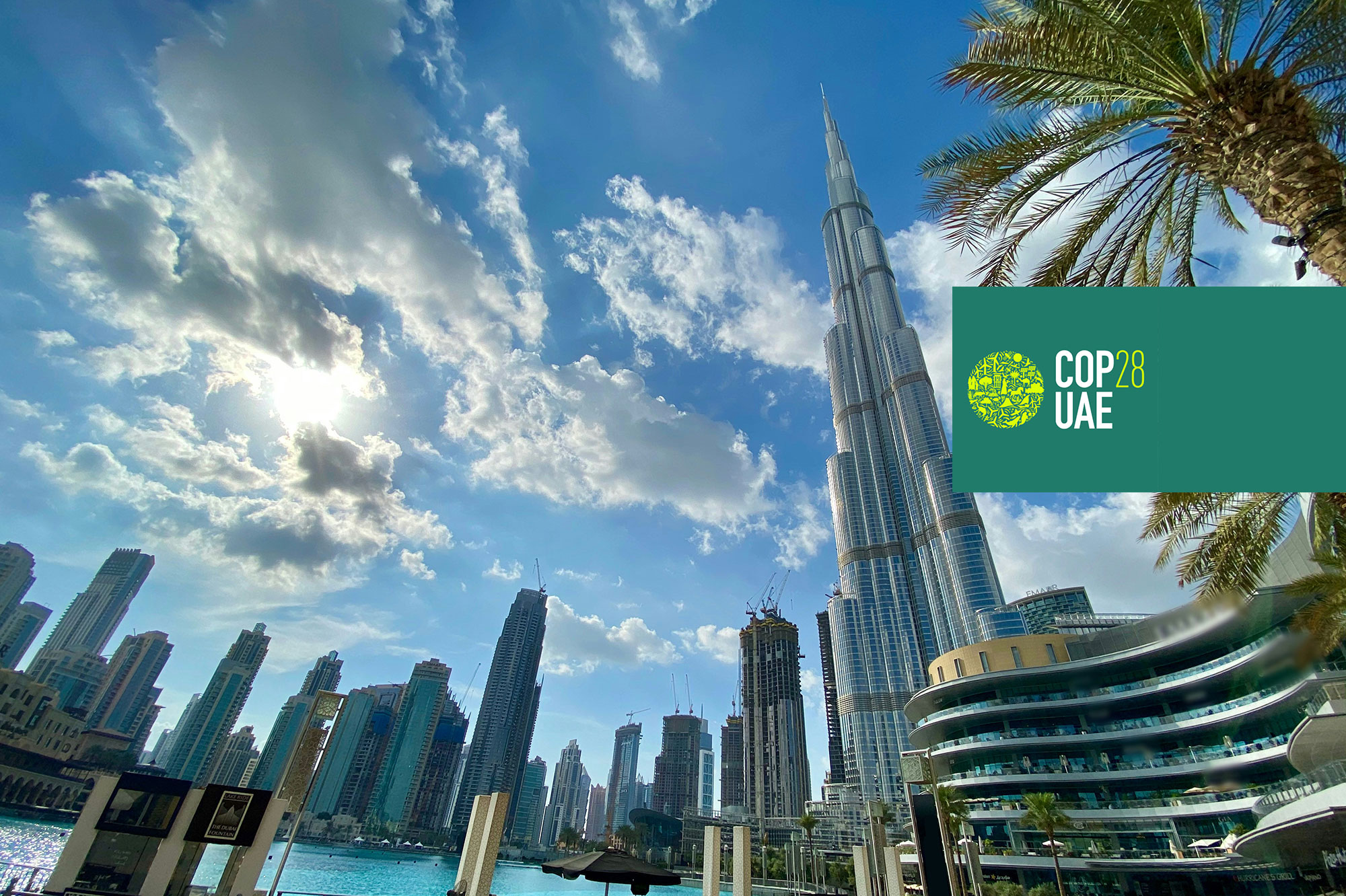Story
COP28, the ocean, cryosphere and Plymouth Marine Laboratory
14 December 2023
COP28 acknowledged the need to transition "away from fossil fuels” but many feel it is not enough.
 COP28 has delivered, for the first time, a clear call on countries to transition away from fossil fuels, which Plymouth Marine Laboratory welcomes. However, while it is accepted that progress was made on a number of key issues, many in the scientific community, including PML, feel the COP28 deal is not perfect and stronger commitments would have benefitted us all around the world.
COP28 has delivered, for the first time, a clear call on countries to transition away from fossil fuels, which Plymouth Marine Laboratory welcomes. However, while it is accepted that progress was made on a number of key issues, many in the scientific community, including PML, feel the COP28 deal is not perfect and stronger commitments would have benefitted us all around the world. PML ocean and cryosphere experts provided evidence of the latest science to key stakeholders during as well as in the run up to COP28, such as through publications, meetings, UNFCCC submissions and leading or speaking roles in events.
The COP28 outcome saw an increased recognition of the ocean in, for example the Global Stocktake and the Global Goal on Adaptation, however the Cryosphere was not yet recognised to the same extent, although it was mentioned.
PML’s Professor Helen Findlay, scientific reviewer on the State of the Cryosphere report 2023, said:
"The statements from the majority of countries that followed the agreement of the text for the Global Stocktake (GST) showed how the large majority of countries align with the science and the need for vast and rapid emissions reductions for a 1.5° target as the upper limit, as per the science."
"From my scientist perspective, there are many areas of GST text that could have been much stronger – for example stronger wording than “recognizes” where it states: “recognizes limiting global warming to 1.5 °C with no or limited overshoot requires deep, rapid and sustained reductions in global greenhouse gas emissions of 43 per cent by 2030 and 60 per cent by 2035 relative to the 2019 level and reaching net zero carbon dioxide emissions by 2050”. However, despite weak wording, and disconnect between notation and agreed action, for the first time fossil fuels are actually discussed outright”.
Further publications PML staff contributed to included topics such as the ‘Ocean breakthroughs’, Actionable Blue Carbon ecosystems for Climate Mitigation and adaptation, Precautionary principles for ocean carbon dioxide removal research, Integrating the Ocean: Options for the CMA 5 Decision on the Global Stocktake, Recommendations for Coastal Cities to Adapt to Sea Level Risea level and PML joined international ocean science, policy, and philanthropic organizations in calling on world leaders to recognize the importance of the ocean in climate and support efforts to expand and improve ocean observations worldwide, including coverage in under-observed regions though the ‘COP28 Dubai Ocean Declaration’
PML ocean and climate experts have been taking part in each of the UN Climate Change COPs since 2009 to bring evidence of the latest ocean and cryosphere climate science to key stakeholders. Over the years the presence of the related communities on these topics has grown significantly.
The PML COP28 delegation had speaking or coordinating roles in 25 events covering a range of issues from the threats the ocean is facing, the challenges for the cryosphere, to the impacts on society and effective adaptation and mitigation.
Their activities included two official COP28 side events as well as numerous further events in pavilions at the COP such as those of the UN Ocean Decade & Ocean X, the International Atomic Energy Agency, Renewable Energy Association, Cryosphere, Kenya, Liberia, Africa, Kuwait, the Ocean and more, such as the COP28 Earth Information Day where PML’s Professor Steve Widdicombe was a facilitator for a round table on ‘Building observations and understanding of ocean acidification and deoxygenation’.
The Coordinator of the African regional node of the UN Ocean Decade Early Career Ocean Professionals (ECOP) Programme, Anthony Ndah who is an Ecosystem Scientist with PML, mentioned "Climate change is one of the most defining challenges of our time. Young professionals including the Early Career Ocean Professionals (ECOPs) are increasingly at the forefront of this fight, as was clearly demonstrated at COP28. I was honoured to represent PML and ECOP at COP28 to speak on issues related to ocean-climate science, ocean literacy, capacity development and international collaborations, especially pertaining to early career professionals and Africa."
PML was a co-organizing partner in the COP28 Virtual Ocean Pavilion, launched for COP26 in 2021 and aimed at democratising access to the COP for those not able to join in person. This pavilion had over 1,200 registrations from 112 countries who could access a COP28 Ocean Events overview, join live events of the virtual pavilion, explore exhibition booths, meet with experts, access interviews, videos and further information, earn certificates and much more! The pavilion will be open until 12 January and is free to access.
PML was host to an exhibition stand together with the Partnership for Observation of the Global Ocean, the University of Plymouth and the Global Ocean Forum and PML experts provided Earth observations data and case studies for the first ever Space Pavilion a COP. PML was an endorsing partner in the ‘Island Voices’ initiative.
Our ocean experts enjoy collaborating with many international partners during the UNFCCC COPs and are looking forward to continuing to do so to bring even greater ocean, cryosphere and climate understanding and recognition in the UNFCCC process towards increased ambition.
To catch up or view our events on demand please click here.